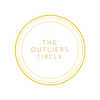Your topic may be something you came up with yourself or was drafted for you along with your supervisor’s input. An important thing is to understand that the aim of a dissertation is to demonstrate your ability to think critically. It will be good to think about contributing in some way to your discipline in the chosen research area. You can ask others for ideas, especially in relation to the topics your professors currently are interested in. It may be best to relate your work to the research areas of your professors; this way, if you get stuck, there will be a nearby well to draw from. Also, get familiar with the grading criteria and keep the metrics in mind as you work on your topic.
Critical Thinking & Writing
Critical thinking and writing is what sets your master’s dissertation apart from your bachelor’s degree project report. When you make a claim, you need to present convincing explanations to your readers. To kick start your critical thinking process, it may help to use the 5W’s and H (What? Where? Who? When? Why? How?). What phenomena/results are you presenting and why do some segments matter more than others? How did you arrive at your conclusion? What implicit/explicit biases did you consider/ignore? Are there assumptions you made and how might those affect the results that you obtained? What additional factors did you consider and how might that have affected the results generated? The lists of possible questions are endless. But you must present a valid case for your stance. Learning to read critically may help you in your own thinking process too, especially in your result analysis. A good book on this is Critical Thinking by Tom Chatfield.
Making an argument
The soul of a thesis is the argument that holds it together. One of the most critical factors to consider when writing a dissertation is the presentation of a clear argument- standing for or against certain schools of thought and presenting evidence from other people’s work that make up the premise of your own work. That quote by Sir Isaac Newton, “If I have seen further, it is by standing on the shoulders of giants” means there is definitely something that you can draw from. Seek out past research on your topic, read textbooks to help you understand fundamentals, classify different schools of thought on the topic/subject and take a stance in your literature review. Another plus is that when you keep getting better at making good arguments, it will lower your tendency to plagiarise. A book I have found helpful is: Detox your writing- strategies for doctoral students (although it is not for a master’s degree dissertation, it holds really valuable information- and may be a plus if this is a stepping stone to a PhD or future research career).
Keeping good notes
Systematic note taking is so important. No matter how intelligent you are (or think you are), good note-taking is crucial. This will help you make, organise and give structure to your reading. Notes help you keep track of your thought and argument process. When you initially begin to grapple with a topic, your thinking may be low-level. But when you start grouping your reading, drawing from good notes and pulling concepts together, patterns of thought and clear ideas will emerge. Also, you will never need to hate yourself for not remembering what you saw in a research paper or the information you should have kept from the last few days’ experiments. Whatever your style – longhand or typing- make sure it is always accessible and that you refer to it often.
Organising your source materials and literature
When you study literature and use them in your work, the reason is to see where your work fits into a discipline. There is a sea of written and published work, but you need to focus on key primary references. Primary references are often first-hand sources directly from your personal data collection, official reports, empirical studies, etc. Secondary sources are based on second-hand information, reviews or commentaries. They may be obtained from the data sources in someone else’s work, articles, textbooks, etc. and other documents used to support your work. Organising these sources is important in the writing process and primary sources should be your best anchor. A technique that helps is drawing/mapping out a reference/literature tree. This way, when you look through your references and other people’s work, you can better understand where they fit within your topic and in the broader discipline. It’s an art and there is no perfect way to do it, but just like we have our family tree, our research work and the research work of others also have a family tree.
Referencing
Many people dread the sound of having to put together their references/bibliography. One way to avoid the pain is to store papers, books or data sources in a form that allows you to locate them easily. A referencing software is a great tool to have in your student toolkit and there are many on the market like Mendeley, ReadCube Papers, etc. If you also choose to store referenced documents on your computer, make sure it is stored on the cloud (iCloud, OneDrive, Google Drive or any other cloud service). I prefer to save documents as “Author name(s) and Year – document type” (e.g. Randle et al. 2001 – journal article). Consistency across different writing media is what matters. More so, I will be able to locate the source whenever I need to. Do not wait until the last minute to get a system in place for your referencing because it will take you longer than you expect. You cannot fathom the chaos many students could have avoided had they taken this a little seriously. When you are able to proficiently use your chosen referencing software, your job doesn’t end there. You may need to amend or format the final reference/bibliography section in your final dissertation. So be sure to check that it is in line with the requirements of your department.
Learning a research method/working in the laboratory/using software
Depending on the type of research you venture into, the research methods will vary. Understanding the difference between qualitative and quantitative research is the first step in deciding on the most ideal research method to use. Your supervisor will guide you on the most suitable for both the work you have to do and the time you have. Some students may have to work in the laboratory, carry out experimental research, perform interviews/workshops, write case studies, or use computer software. One thing everyone will have in common is perhaps using a research method for the first time. So read what you can about the method you select, with help from your supervisor; but more importantly, get started with it as soon as possible. Besides the actual dissertation writing, using a research method can either give you an adrenaline rush or make you anxious. If you are like the best of us, it makes you anxious. So, the best thing is to get started with it as soon as you can, even while writing your literature review.
Formatting
Formatting is what most people leave for the “last-minute tidying up”. But “tidying up” always takes longer than expected. In a lot of ways, it is better to sort this out even before you edit your final drafts. Take good care to make sure that your headings, sub-headings, page numbers, table of content (TOC), table of equations, table of figures, appendix, etc. are well organised. Some universities make this easy by providing a thesis template that helps with the document organisation. Find out from your librarian if this document exists at your university. It will save you a lot of time in manual entry and make your overall presentation better. If your university does not have a template, there will be similar templates you can use online. You may consider looking at past well-graded theses. Check with your librarian to know how you can access the repository of previous successful student theses within your university.
Get feedback
Getting feedback in good time is the difference between average writing and good writing. Show your work to colleagues or friends to see what they think about your writing. Your supervisor(s) may not have all the time in the world to be honest. However, getting input from people who can provide valuable insight about your writing, critical approach and presentation is the next best thing. I still get anxious about receiving feedback but knowing that it will mostly improve the dissertation quality, it is something to embrace.
Overall, these points are all parts of a whole and you should never lose sight of the big picture – you are writing to learn and to produce a well-thought-out piece of work about your research topic. There are so many other things like framing your questions, meta-structuring, plagiarism, support groups, micro and macro editing, etc. One thing to keep in mind is that this is a learning process and even though things do not always go as planned, you can put in the effort to produce a good piece of work. Success in dissertation writing begins and ends with being grounded by the right habits, tools and techniques. We hope you find the ideas and insights useful.
All the best.
Please ask us any questions in the comments or if you need a guide about something we have not discussed in this post. Cheers to your learning!


insightful to be honest, this will come in handy!
Glad you found it insightful.